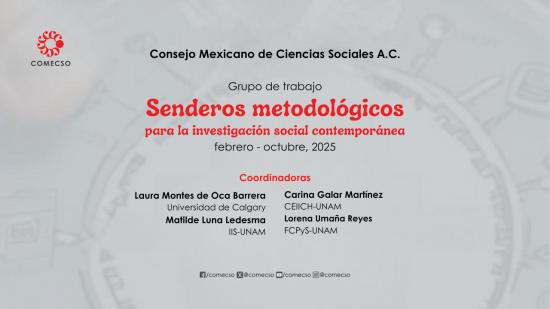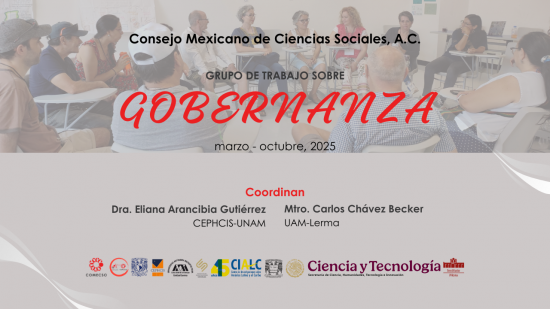Socio-political Responses during Recessionary Times in Greece
Vol. 11, No. 1 (2018). Special issue: Socio-political Responses during Recessionary Times in Greece
The main rationale of the Special Issue is to capture facets of Greek citizens’ socio- political responses that have emerged from the aftermath of the economic crisis. The Special Issue includes six papers applying quantitative and qualitative methods to explore different aspects of socio-political responses to the outcomes of the Greek crisis. Such a multi-method approach, provides a rich set of fresh and systematic data, offering fruitful insights on understanding the collective efforts of Greek citizens during hard economic times.
All contributions rely on original data produced in the context of two EU-funded projects, namely LIVEWHAT and TransSOL. The former is conducted across nine European countries, i.e., France, Germany, Greece, Italy, Poland, Spain, Sweden, Switzerland and the UK. The LIVEWHAT project aims to provide evidence-based knowledge about citizens’ resilience in times of economic crises, allowing for more effective policy responses to the negative consequences of such crises. The second EU-funded project, TransSOL, is conducted across eight European countries, namely Denmark, France, Germany, Greece, Italy, Poland, Switzerland, and the United Kingdom. The TransSOL project aims to provide an exhaustive analysis of the individual forms and conditioning factors enhancing transnational solidarity in Europe.
The Special Issue is addressed to researchers and scholars, interested in the socio- political responses of Greek citizens during hard economic times. The contributions enhance our understanding of specific forms of collective actions and specific individual practices, aiming to remedy and cope with the effects of the crisis, their required resources and challenges faced, as well as their potential sustainability and future development. Moreover, the plurality in the data used, derived from the two EU-funded projects, LIVEWHAT and TransSOL, shed light on the richness of methodological approaches and techniques that can be used to disentangle citizens’ socio-economic responses during recessionary times.
In the first paper, Angelos Loukakis, using quantitative data from the LIVEWHAT project, derived from an innovative methodological approach labelled Alternative Action Organisations Analysis, sheds light on the political aspect of the Greek Alternative Action Organisations (AAOs), which primarily aim to provide solidarity activities to vulnerable socio-economic groups. The findings unveil AAOs’ responses during hard economic times, emphasizing distinct features between ‘political AAOs’ (i.e., AAOs engaged in protest, awareness-raising and lobbying activities) and ‘non-political’ ones (i.e., AAOs engaged exclusively in solidarity actions). About two thirds of the AAOs under study are ‘political’, highlighting their dual role as solidarity providers and as political actors. ‘Political AAOs’ are portrayed as primarily informal or protest groups and NGOs, mainly functioning at the national level and being founded prior to the recent economic crisis. Moreover, ‘political AAOs’ are more likely to have a higher degree of formality, apply direct democratic forms of decision-making, as well as emphasise aims, associated with social change and the promotion of collective identities and community empowerment. The paper provides a significant contribution to our knowledge, with respect to the role of the AAOs as actors in the political arena during the Greek economic crisis.
In the second paper, Marina Papadaki and Stefania Kalogeraki, also using data derived from the Alternative Action Organisations Analysis of the LIVEWHAT project, provide some indicative nationwide findings about the Greek Social and Solidarity Economy (SSE) sector, in the context of the recent crisis. The authors highlight the interrelations of the recent SSE expansion as a response to the recessionary conditions in the country. Most of the SSE organisations under study have been founded after the beginning of the crisis, while among their most widespread activities is covering the urgent needs of different type of beneficiaries, which primarily comprise vulnerable socio-economic groups. The Greek SSE sector besides operating as a coping strategy to remedy the effects of the crisis, also acts as a tool of promoting social change, empowerment, democratic governance and alternative practices. Despite the methodological limitations of the study, the preliminary findings enrich the scarce, quantitative, empirical evidence of the Greek SSE sector by portraying its main attributes and shedding light on its twofold role, i.e., as means to respond to the effects of the crisis, but also as tools of collective empowerment and social transformation, during hard economic times.
In the third paper, Eugenia Petropoulou, presents the results of the case study analysis of a Greek Urban Consumer Cooperative, namely Nontropo (pseudonym used) that buys food and other products directly from producers, who are selected in accordance with ethical and solidarity principles. The author relies on data gathered during the LIVEWHAT project through a face-to-face interview with a key representative of the specific Social and Solidarity Economy initiative. The findings underpin that whilst such initiatives are incapable of replacing the current capitalist system they can provide an alternative field of sustainable consumption patterns that utilise local-traditional resources in order to empower local communities in austerity-ridden Greece. The author underscores that in the case of Nontropo, the enhancement of solidarity is one of the most fundamental motivations behind sustainable food consumption. Moreover, whilst, the localised practices of Nontropo, in addition to the fair, eco-friendly and small-scale provision of food and other services can become limiting factors to financial security, at the same time, act as a safety net towards the current recession. The paper provides some critical pieces of empirical evidence on how a Greek Urban Consumer Cooperative initiative by integrating its values, beliefs and practices into the local context promotes an alternative and sustainable model of development at times of crisis.
In the fourth paper, Yiannis Zaimakis, drawing upon in-depth interviews with key informants of grassroots alternative organisations, mainly derived from the framework of the LIVEWHAT project, sheds light on the political imperatives and ideological positions surrounding solidarity economy initiatives. Based on seven striking exemplars of politically-oriented, solidarity economy collectives in crisis-ridden Greece and using critical discourse analysis, the author unveils activists’ voices articulating a heteroto- pian vision of an alternative economic model that moves beyond the market and the state, and calls into question the neoliberal market logic. Activists, behind their solidarity economy actions, unearth a radical political imaginary that is characterised by romantic humanism, egalitarian goals and an ethos of collectivism. Whilst such an imaginary involves a better world, which significantly departs from the prevalent capitalist imaginary, solidarity economy initiatives, as critical responses to the recent crisis, are in reality constrained due to their limited impact on society, low sustainability capability, limited life-spans and internal ideological conflicts. The paper provides a significant contribution in the specific field of research, by illuminating the motives, worldviews and value-systems that lay behind solidarity economy initiatives during hard economic times in Greece.
In the fifth paper, Christina Karakioulafis and Kostas Kanellopoulos use in-depth interviews with Greek grassroots trade unionists and labour activists, in the framework of the TransSOL project, to explore strategies towards contingent workers and the un- employed. The authors underline the fact that despite the acute increase in employment precarity and unemployment during the economic crisis, the general stance of the Greek ‘official’ and more ‘institutionalised’ trade unions towards contingent workers and the unemployed has been strongly contested, whereas grassroots rank-and-file unions have had a more active role. Focusing on the latter, the in-depth interviews un- veil a working class-oriented identity, discourse and framework of action, as well as a conception of class solidarity, adopting inclusive strategies towards contingent workers and the unemployed. Despite the critical role of grassroots rank-and-file unions, the authors underpin the fact that their impact is limited, primarily due to the lack of infrastructural and material resources that could considerably contribute to the inclusion of precarious and unemployed workers to the system of interest representation. The paper provides crucial insights on Greek union responses in the context of the recent crisis, by highlighting the malfunctions of the official trade unions, as well as the challenges faced by grassroots rank-and-file unions to effectively treat the increased unem- ployment as well as the precarisation of employment conditions.
In the last paper of the Special Issue, Yota Papageorgiou and Vasiliki Petousi, using individual online survey data from the LIVEWHAT project, shed light on the effects of the crisis – primarily on employment and working conditions – on Greek men and women, as well as on their responses to withstand hardships and bounce back. The authors underscore that, whilst both men and women have been severely affected from the recent recessionary conditions, among women, it is those in the lower occupational categories who have withstood more severe losses in employment and working conditions. Moreover, the findings underpin the fact that, in response to the crisis, men and women, albeit in different ways, adjust, accommodate and resist hardships through personal (such as reduction in consumption) and collective actions (such as membership in organisations and active engagement in political actions) of resilience. The paper makes a significant contribution to our knowledge in the specific field of research by stressing the key inclusion of gender considerations as an integral part of any study that aims to provide a thorough understanding of the detrimental consequences of the crisis on citizens’ working and living conditions, as well as their resilient responses to accommodate and resist adversity.
Download special Issue >>
Te puede interesar
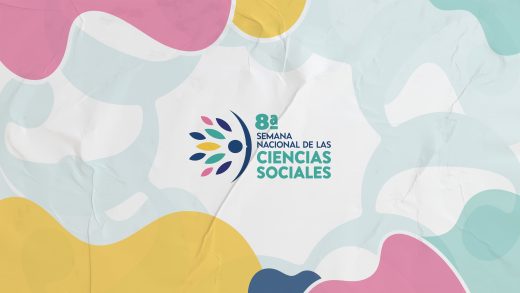
Convocatoria a la 8a Semana Nacional de las Ciencias Sociales
Laura Gutiérrez - Abr 10, 2025El Consejo Mexicano de Ciencias Sociales Convoca a las entidades académicas de las Ciencias Sociales, escuelas, facultades, centros e institutos…

Publicaciones del COMECSO
Roberto Holguín Carrillo - Ene 08, 2025Este espacio reúne la gran mayoría de la producción editorial de nuestra asociación. A lo largo de casi cinco décadas,…
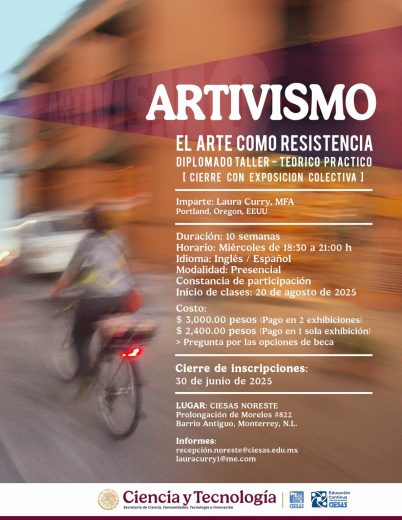
Artivismo- El arte como resistencia
Laura Gutiérrez - Abr 11, 2025Centro de Investigaciones y Estudios Superiores en Antropología Social, CIESAS-Noreste INFORMACIÓN GENERAL Impartido por: MFA Laura Curry, Portland, Oregón, E.E.U.U,…

3er Concurso de Investigación sobre Discriminación en la Ciudad de México
Laura Gutiérrez - Abr 11, 20253er Concurso de Investigación sobre Discriminación en la Ciudad de México El Consejo para Prevenir y Eliminar la Discriminación de…
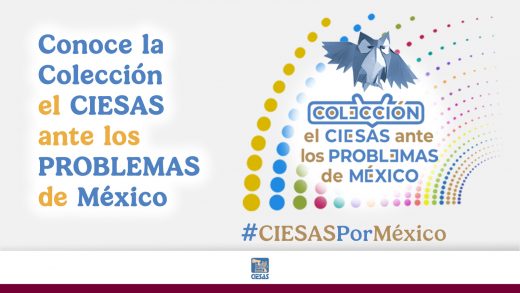
El CIESAS ante los problemas de México
Laura Gutiérrez - Abr 11, 2025El ciesas publica nueva colección de divulgación Nueve fascículos de divulgación científica que tratan diferentes problemáticas de México estudiadas en…



